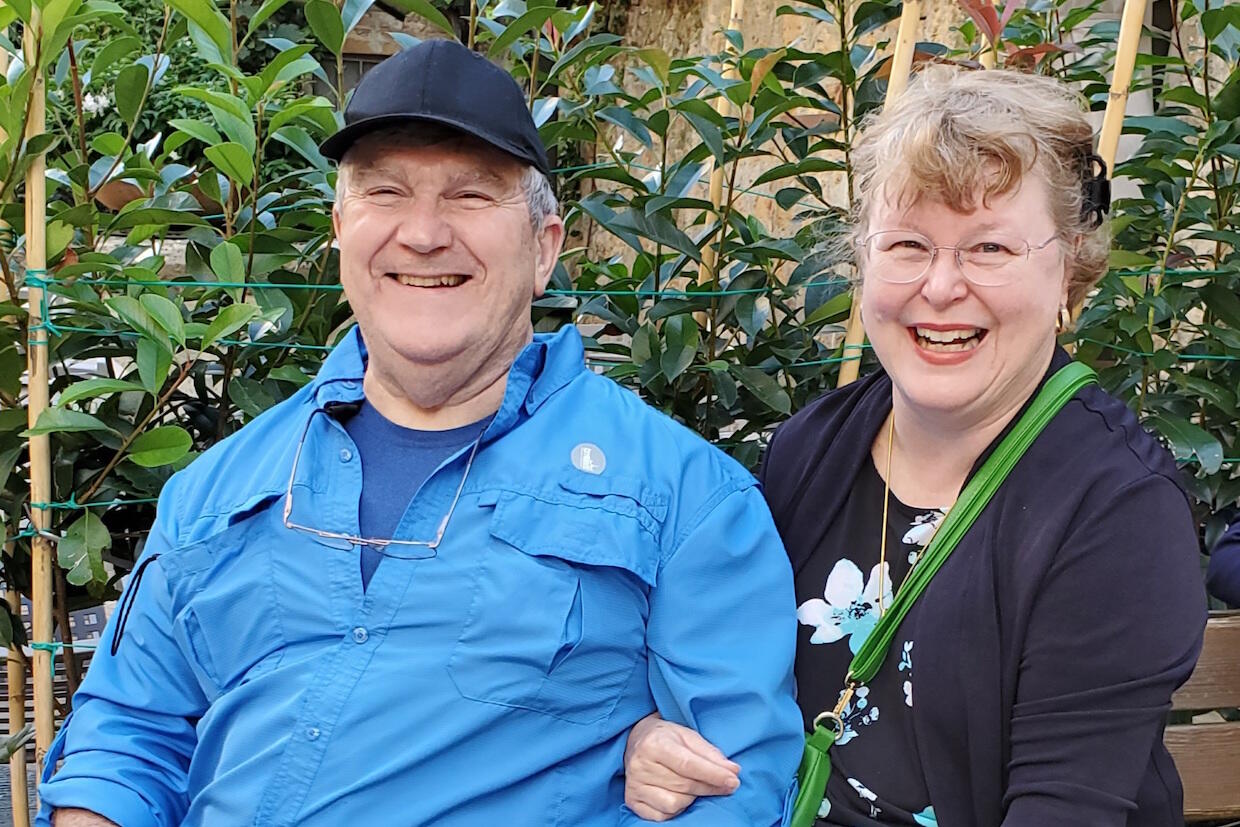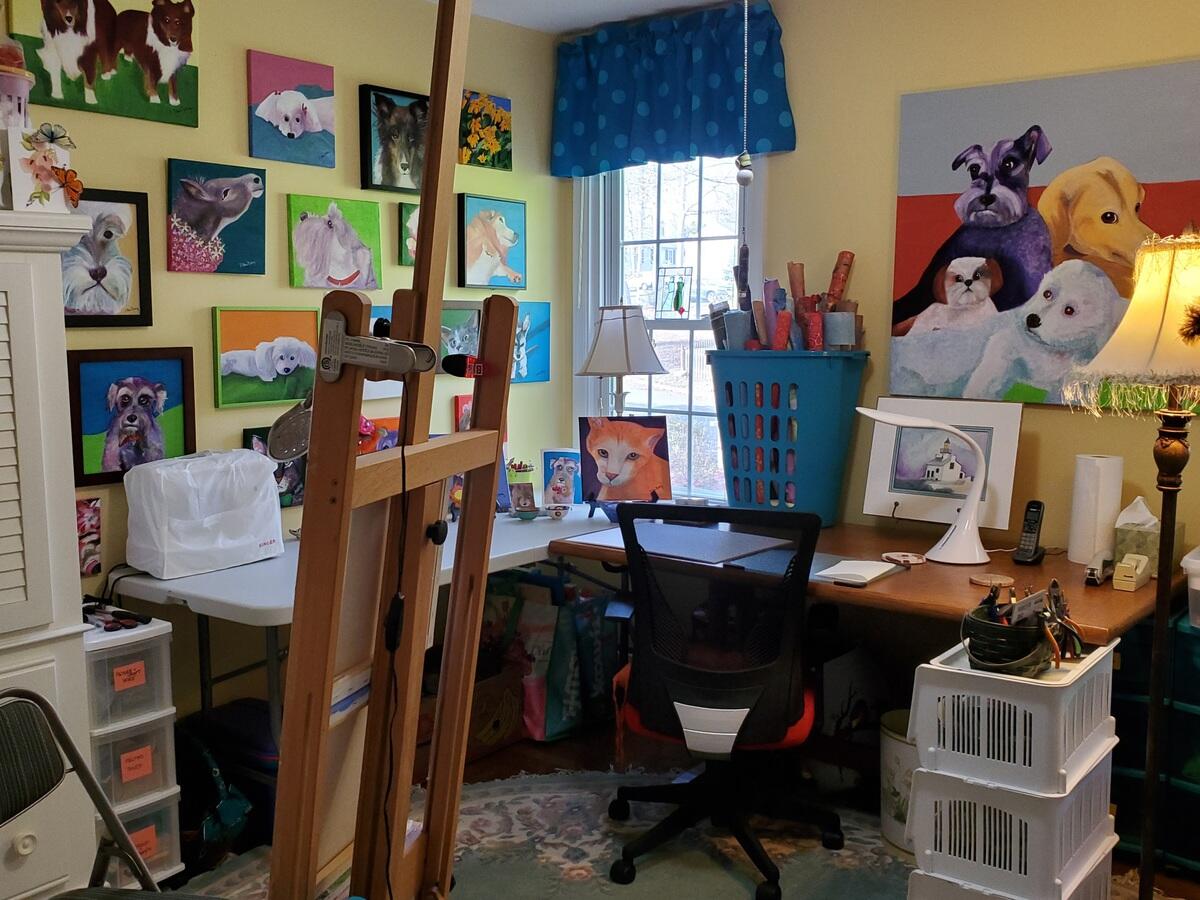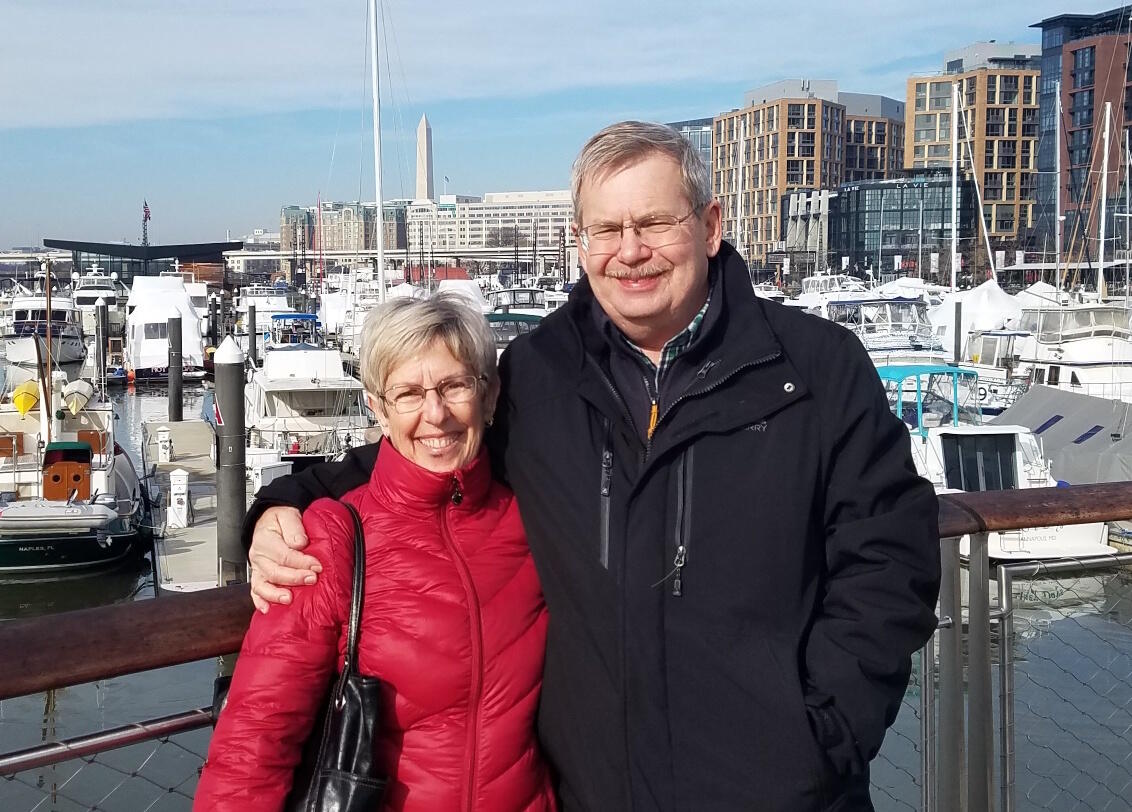
May 5, 2020
Balance at home: Retired couples offer some lessons on togetherness
Tip No. 1: Be intentional about your space and activities while spending so much time together.
Share this story
As stay-at-home orders continue, families can benefit from the advice of retired couples who have learned to navigate the choppy waters of too much togetherness.
Start with looking at being together as a good opportunity to be intentional about your space and your activities, said gerontologist E. Ayn Welleford, Ph.D., associate professor in the Department of Gerontology in the VCU College of Health Professions.
“A lot of the retirees that I talk to say they need to have both shared and separate space in the home,” she said. “It’s clearly defined, negotiated and respected.”
Separate space allows each person a place of solitude for activities or hobbies while shared space denotes family time, whether it’s a meal or activity.
After retiring and being together on a constant basis, Ellen Netting, Ph.D., a VCU School of Social Work professor emerita, and her husband, Karl, a former chaplain with Bon Secours, discovered a need for solitary space in the house.
“We have respect for quality time alone as well as together,” Ellen said.
The couple built a sunroom on the back of their house so Karl could enjoy the outdoors and play with his two dogs. Ellen has a study upstairs for her artwork and other interests.

“You have to have interests you can pursue together and separately,” she said.
Judy Nelson, a retired registered nurse, and her husband, Bill, who retired as director of the Chesterfield County Health Department, spent time participating in different community activities and interests before the pandemic. Now with the stay-at-home mandate, they’ve adjusted their schedules and their spaces at home.
“I’ve learned that doors are helpful for signaling our time to work alone, as we tend to distract each other,” Judy said.
The couple is also changing some daily activities. They enjoy walking together, for example, but they sometimes walk separately, allowing extra time alone. “It also seems important to create special times together, like having a favorite meal in the dining room or coffee on the porch without cellphones,” Judy said.
We found that “we can’t change what’s going on in the world, but we can change things here,” Judy said.

Establishing space, activities and days that are structured is important for everyone’s well-being, Welleford said.
“If we don’t have structure, we may tumble through without intentionality. We may find ourselves at the end of the day, week, month or year feeling unfulfilled. These days, I am witnessing many people putting great intentionality and effort into supporting existing relationships.”
Welleford offers the following tips for navigating your time at home with family.
Create shared and separate spaces in your home: And set ground rules. Make sure spaces are clearly defined, negotiated and respected.
Plan for shared and separate activities: Focus on personal activities as well as creating activities the family can enjoy together. Plan some time for relaxation, something everyone can look forward to.
Negotiate time together and apart: Set up family meetings where everyone can have their say. If you have several people in your home, it could look like a free-for-all if you don’t talk it out and create a climate of mutual respect and structure for shared and individual needs.
Put it on the family calendar and respect boundaries: Have everyone write down the times they will be in common spaces and the times when they will be in their separate space. If you are working from home, write down your work hours as well as times for scheduled meetings or phone calls.
Say thank you: Express gratitude to the people in your life. It’s such an important part of maintaining harmony in any relationship. Something as simple as a thank you goes a long way in promoting peace and offers reminders of the positives in our lives in these unsettling days.
“With the pandemic, everyone is all of a sudden at home together,” Welleford said. “Any transition is hard; our relationships are key to our success and survival in any transition or trauma. This is an opportunity to learn new adaptive relational skills reminding ourselves, ‘I have to adjust to this and make the effort.’”
Subscribe to VCU News
Subscribe to VCU News at newsletter.vcu.edu and receive a selection of stories, videos, photos, news clips and event listings in your inbox.










